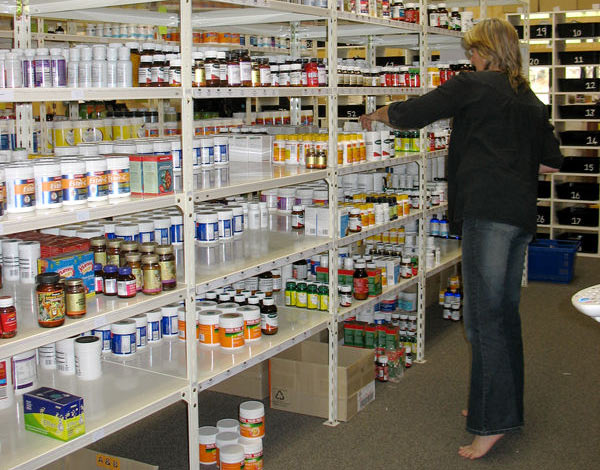Globalization helps NZ family biz tap China market
 0 Comment(s)
0 Comment(s) Print
Print E-mail China Daily, March 27, 2017
E-mail China Daily, March 27, 2017
 |
| A Healthpost employee sorts products at the company's warehouse in Collingwood in Golden Bay on New Zealand's South Island..[Photo provided to chinadaily.com.cn] |
While the Butlers were still searching for the reasons behind their increased Chinese-related sales, a Chinese lady knocked on their doors and said she could help to expand the China market.
Harrriet Zhou, or Zhou Xinpei, who studied for her bachelors' degree at the Auckland University between 2008 and 2012, later became Healthpost's China country manager.
Abel Butler said he believed that hiring Zhou marked a great turning point for their business.
That same year, Able Butler, accompanied by Zhou, visited China for the first time. They visited Alipay, Baidu and showed up at health products expositions and shops selling imported products.
He said he was awed, not only by Chinese food which tasted so good, but also by the sound economy of the country and its people's purchasing power.
Back in his home country, they decided to hire four more employees of Chinese origin to set up and maintain a Chinese sub-site, the company's Sina Weibo and WeChat accounts and to serve Chinese customers.
In 2016, the company earned millions of New Zealand dollars from approximately 25,000 Chinese consumers, who accounted for 20 percent of all consumers. Two years earlier, the percentage was only two percent.
On Dec 12, 2016, Healthpost, a cross-border B2C e-commerce platform itself, joined Tmall International. Abel Butler said the company has seen robust growth in sales over the past three months.
Although Healthpost went online on Tmall in the second week of December, the company recorded 30,000 yuan ($4,355) in revenue on China's e-commerce website in that month alone, said Harriet Zhou.
She added that in January and February transactions reached 63,000 yuan and 81,000 yuan respectively and predicted that in March sales would hit 160,000 yuan as the company saw revenue reach 30,000 yuan in just one day after it held a promotion on Wednesday.
A herbal liquid for chest care manufactured by the Butlers' another firm BioBalance, a milk tablet, and manuka honey were the top three best sellers, said Zhou.
Abel Butler said he did not rule out the possibility that the company would open a bricks-and-mortar store in China even though more custom procedures might be needed.
"We are where our customers are so that they could buy at any channel convenient for them," said the CEO.
Abel Butler came to China in the middle of March for a second time, this time with his father Peter, to visit Alibaba in Hangzhou, to form more sales channel partnerships and to seek advice from advertising firms.
They also chatted with four Chinese customers face-to-face in Beijing to get answers on "why they like us".
He said he might come to China more often than before. "Perhaps every several months."
He also revealed that the company is going to hire more people of Chinese origin to fully meet demands from this vast country.
Peter Butler said that even though the Chinese government has lowered its expectations for economic growth in 2017, he still viewed China as the best market for his company as 6.5 percent growth is still much higher than economic growth in other countries including New Zealand.
When asked whether the company is open to capital from China, he said that although many big brands in New Zealand's health product sector have been bought by Chinese investors, he still prefers the company to be family-owned.
"But we are open to joint ventures or cross ownership. "






Go to Forum >>0 Comment(s)